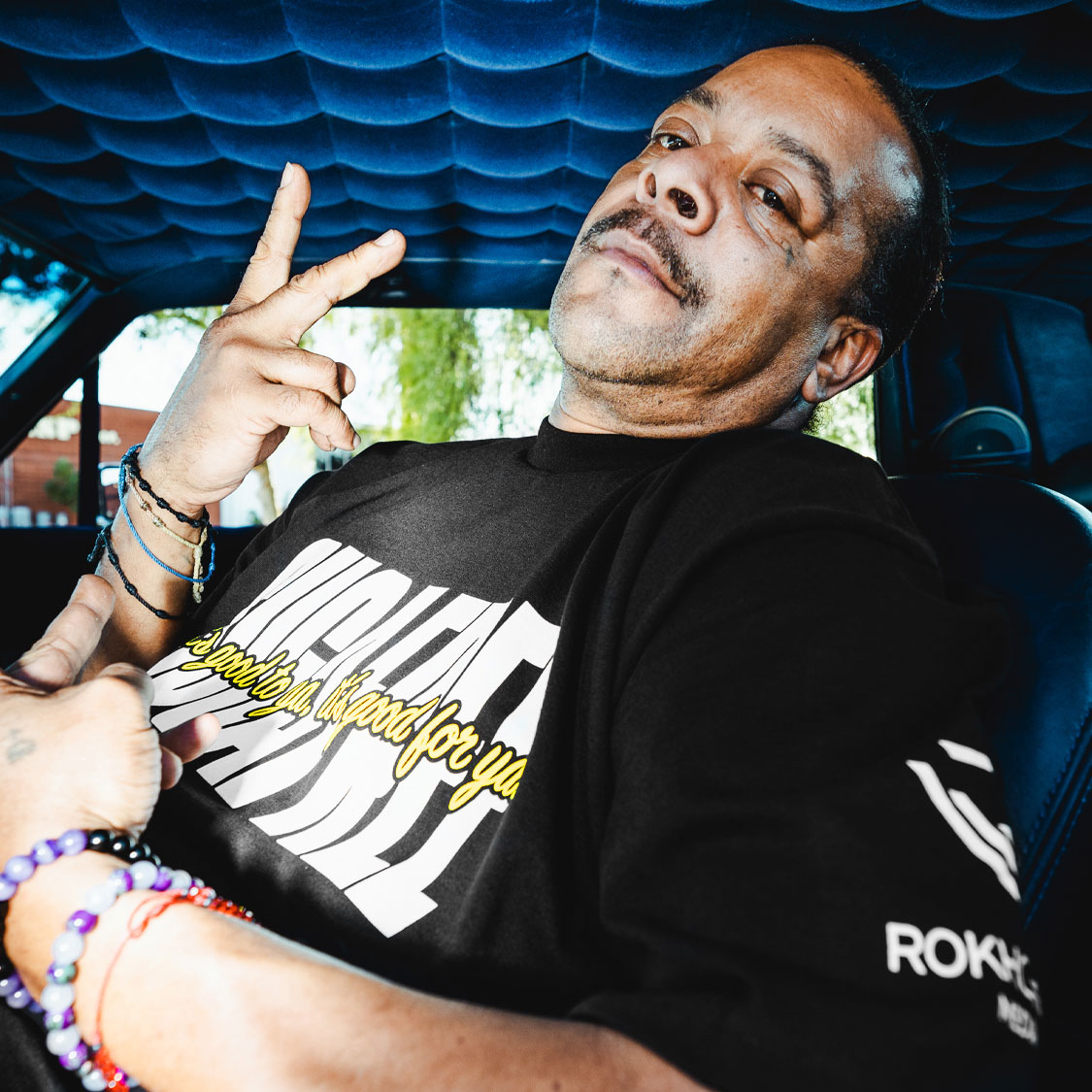Uncut Game: The Suga Free Effect
“If you stay ready, you ain’t got to get ready.” — Suga Free
Some rappers chase fame. Some chase fortune. But Suga Free? He chased truth. Raw, hilarious, street-certified truth — served cold with a twist of game that only a true player could deliver.
In the world of hip hop, where artists come and go with trends, Suga Free stands as a cultural monument — untouched, unbothered, and absolutely unrepeatable. But here’s what fans don’t always know about this brillant Emcee & Scholar…
Born Dejuan Rice in Gardena, California — but raised in Oakland, Compton, and later Pomona — Suga Free didn’t just study the game… he lived it. Before rap, before fame, before Quik — he was really outside.
Free didn’t start rapping until his late 20s. Up until then, his life revolved around what he famously called “pimping and politics.” He was lacing game in real life long before he touched a studio. This wasn’t a gimmick — this was autobiography.
Most rappers dream of making it out. Suga Free? He was already a local legend before the booth.
Legend has it that when DJ Quik first saw Suga Free perform at a tiny club in Pomona, he didn’t know whether to laugh, fear him, or sign him. He famously said:
“Free didn’t rap like nobody I’d ever seen. It was like watching a preacher, a pimp, and a comedian all in one.”
Quik didn’t just produce Street Gospel — he curated it like a museum of game. Suga Free would often freestyle entire verses off the dome, only to come back later and sharpen them word for word.
Fun fact: Suga Free recorded a lot of Street Gospel in one take.
Despite his wild image, Suga Free lives by structure. He’s spoken in rare interviews about:
• Not smoking or drinking during recording
• Reading constantly to sharpen his mind
• Believing that true game requires mental discipline
• Being anti-drug long before it was cool to say so
Free once said:
“What kind of boss gon’ let a drug rule him? That ain’t game — that’s slavery.”
That mentality set him apart from many of his peers.
His Style Inspired More Than Rap
You can hear Suga Free’s cadence in LA battle rap, in Detroit’s off-kilter flows, in the player talk of modern artists like Larry June, Jay Worthy, or even Kendrick Lamar’s character-driven verses.
But beyond music? Hair stylists, street hustlers, comedians, and even motivational speakers reference his quotes like scripture.
Real fans know: Suga Free wasn’t just rapping — he was building a philosophy.
Some rare Suga Free gems that never went mainstream but deserve their flowers:
“The loudest man in the room usually got the least to say.”
“Don’t confuse movement with progress.”
“A man with discipline is richer than a man with diamonds.”
“It’s players that hustle money… and it’s hustlers that play themselves.”
Most rappers fear aging out. Suga Free never worried about that — because his content wasn’t based on youth, trends, or fantasy.
It was based on eternal truths of the human game: how people lie, how they love, how they hustle, and how they lose themselves chasing what doesn’t matter.
Suga Free is proof that originality never expires. When he talks, you listen — because every bar feels like it came with experience paid in full.
There will never be another Suga Free. Not because people don’t try — but because the essence can’t be faked. You can learn the words. You can mimic the style. But you can’t duplicate a man who lived every syllable he spit.
Suga Free didn’t just change West Coast rap.
He changed what it meant to be a real one.
Forever player. Forever laced. Forever Free.









.jpeg)















No comments